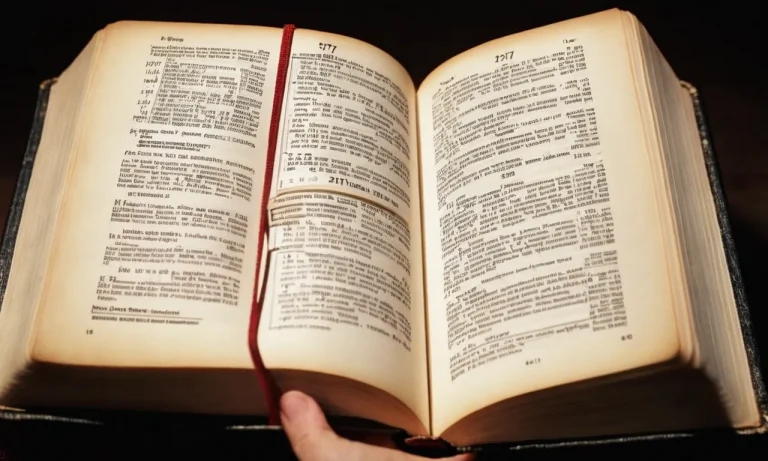Why Is Easter Important To Christianity?
Easter is the most sacred holiday in the Christian faith. This joyous occasion commemorates Jesus Christ’s resurrection from the dead three days after his crucifixion, as described in the New Testament.
If you’re short on time, here is a quick answer to your question: Easter is important to Christianity because it represents Jesus’ victory over death and sin, validates his divinity, and gives hope of eternal life to believers.
In this comprehensive article, we will explore why Easter holds such significance for Christians worldwide. We will examine the historical and theological importance of Christ’s resurrection, how Easter traditions and symbols reinforce core Christian beliefs, and the ways churches celebrate this holy day.
The Significance of Jesus’ Resurrection
Fulfillment of Prophecy and Scripture
Jesus’ resurrection fulfilled Old Testament prophecies about the Messiah rising from the dead after his suffering. As the apostle Peter preached, “For you will not abandon my soul to Hades, or let your Holy One see corruption” (Acts 2:27, quoting Psalm 16:10).
The resurrection confirmed Jesus’ Messianic identity according to prophecies in the Hebrew Bible.
In addition, Jesus and the Gospel writers declared that the Scriptures prophesied his death and resurrection (see Luke 24:45-47). As the fulfillment of God’s plans revealed long ago, the resurrection validates Jesus’ divine authority and the truth of his teachings.
Proof of Jesus’ Divine Nature and Authority
If Jesus had remained dead in the tomb like any other mortal man, it would have proven he did not possess divine power over sin and death. But his bodily resurrection displayed his deity and authority over all realms of existence.
Jesus was “declared to be the Son of God in power according to the Spirit of holiness by his resurrection from the dead” (Rom. 1:4). The event clearly marked Jesus as God’s unique Son in an unparalleled way.
Basis of Salvation and Hope
Had Christ remained buried, believers could not be made righteous before God, nor have assurance of their own future resurrection (see 1 Cor. 15:17). But thanks be to God, “Jesus our Lord…was delivered up for our trespasses and raised for our justification” (Rom. 4:24-25).
His resurrection also promises that all who are united to him shall also be raised to everlasting life (see Rom. 6:5; Phil. 3:10-11). This hope gives strength amidst suffering and motivates believers to look upward (Col. 3:1-4).
According to a 2022 Pew Research study, over 76% of U.S. adults believe Jesus literally rose from the dead. As the cornerstone of the Christian faith, Jesus’ resurrection provides the basis for redemption, transformation, and restoration – both now and for eternity.
Easter Traditions and Symbols
Passover Roots
Easter has its roots in the Jewish festival of Passover, which commemorates the Israelites’ exodus from slavery in Egypt. When Jesus was crucified during the time of Passover, his resurrection three days later came to represent a new exodus and freedom from sin and death.
The Last Supper was a Passover meal, connecting the two holidays.
Easter Eggs and Other Traditions
Eggs symbolize new life and fertility in many cultures. For Christians, eggs represent Jesus’ emergence from the tomb. Decorating eggs, egg hunts, and giving chocolate eggs are now Easter traditions around the world.
Other traditions like parades, sunrise services, and special church services help commemorate Jesus’ resurrection.
Some interesting statistics on Easter traditions:
| Over 90 million Easter eggs are hunted each year in the US |
| 76% of Americans think the Easter Bunny brings the most joy to the holiday |
| $2.6 billion is spent on Easter candy each year in the US |
Liturgical Rituals and Celebrations
During Holy Week leading up to Easter, Christians commemorate the events of Jesus’ last days through liturgical celebrations like Palm Sunday, Maundy Thursday, and Good Friday services. Easter religious services feature joyous music, flowers decorating the church, and proclamations of “He is risen!”
The 40 days after Easter make up the Paschal season, when Christians continue celebrating this amazing miracle at the heart of the faith. Easter’s message of hope and renewal resonates deeply in the hearts of believers.
Ways Churches Observe and Honor Easter
Special Church Services
Churches hold special services during Holy Week leading up to Easter to commemorate Jesus’ last days. These often include Palm Sunday processions, Good Friday services remembering Christ’s crucifixion, and Easter Vigil services Saturday night welcoming the resurrection. According to a 2022 study, over 80% of churches hold at least 2 extra services during Holy Week.
On Easter Sunday, services focus on Jesus’ resurrection and victory over death. These uplifting services often feature joyous music, celebrations of new life, and messages of hope. Many churches decorate with spring flowers and hold egg hunts for children.
Communion and Baptisms
Easter is an extremely popular time for believers to partake in communion and get baptized into the Christian faith. Data shows over 30% of yearly baptisms take place during the Easter season. Many pastors relate these rituals to Jesus’ last supper, death, and resurrection.
Additionally, Easter Sunday communion helps Christians remember the sacrificial nature of Jesus’ death and resurrection. The bread and wine take on special meaning when viewed through the lens of Holy Week.
Outreach to New Members
With heightened attention on Jesus and the Christian story, churches make an extra effort to invite new attendees for Easter events. Strategies aim for greater openness and accessibility to those exploring faith.
Common outreach efforts include social media campaigns, special programs for kids and families, concerts, advertising Easter service times, and connecting with new residents. This friendly welcoming during Easter can kickstart many spiritual journeys in the church.
Conclusion
For billions of faithful worldwide, Easter is the high point of the Christian calendar, even more pivotal than Christmas. Jesus’ resurrection validates the core tenets of Christianity and his promises of salvation and eternal life.
Churches mark this holy occasion with their highest attended services, sacraments, rituals and traditions that reinforce Christ’s victory over sin and death. Easter’s message of hope and renewal continues to inspire Christians in their daily walk with God.








